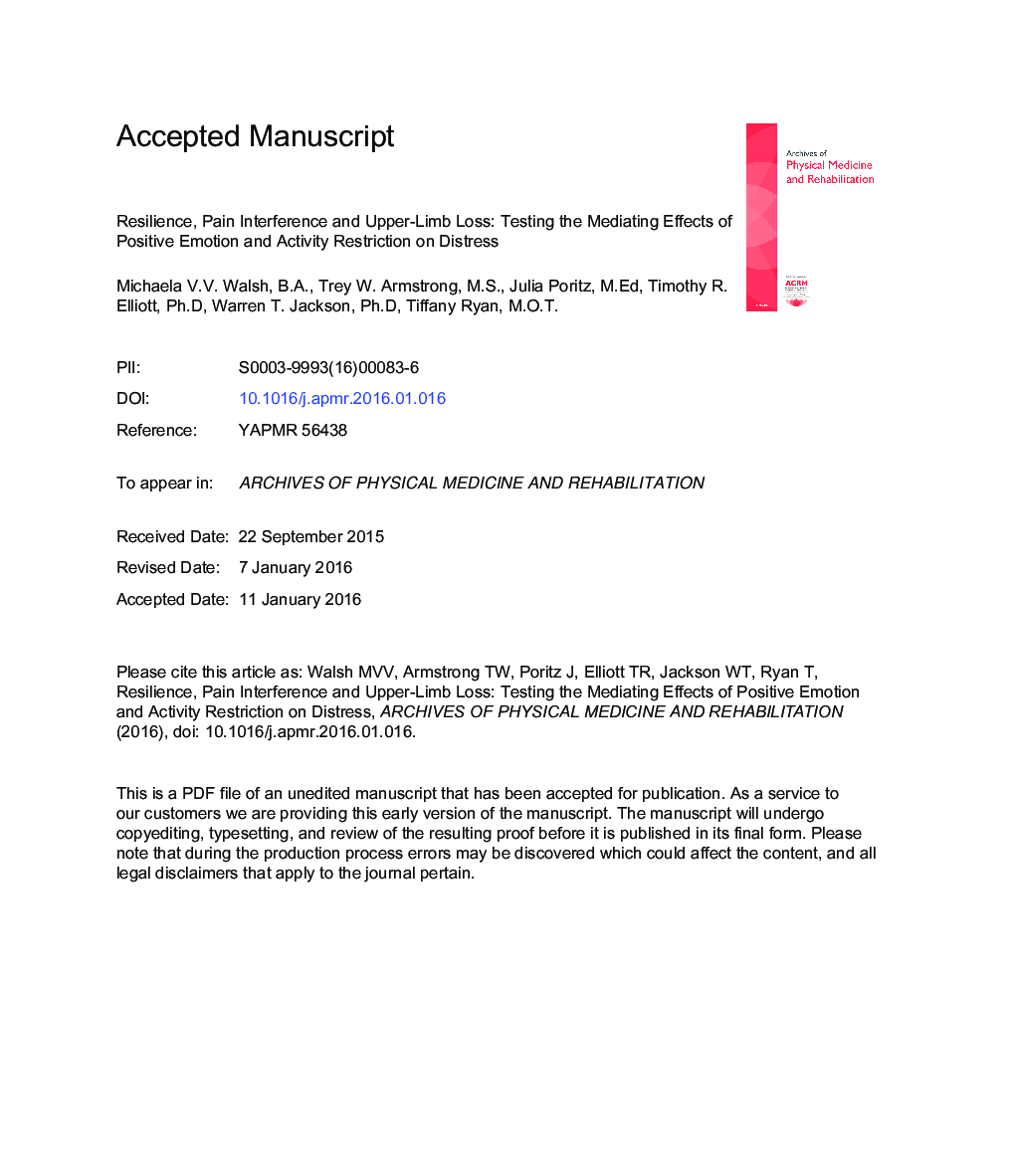| Article ID | Journal | Published Year | Pages | File Type |
|---|---|---|---|---|
| 6149372 | Archives of Physical Medicine and Rehabilitation | 2016 | 26 Pages |
Abstract
Resilience may facilitate adjustment via beneficial and predicted associations with positive emotions and active engagement with the environment. These relations are independent of the significant and inverse associations of pain interference with these same variables. Longitudinal research is needed to understand interactions between positive emotions and activity over time in promoting adjustment after traumatic limb loss. Individuals reporting depression and/or posttraumatic stress disorder symptoms may require interventions that reduce avoidance and promote activities that may increase the likelihood of experiencing positive emotions.
Keywords
Related Topics
Health Sciences
Medicine and Dentistry
Medicine and Dentistry (General)
Authors
Michaela V. BA, Trey W. MS, Julia MEd, Timothy R. PhD, Warren T. PhD, Tiffany MOT,
